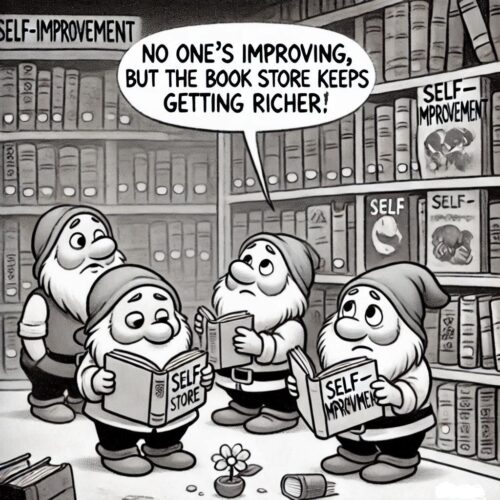IP and Copyright: What Ethical Practices Should Christians Follow?
As Christians, we’re called to live with integrity in all areas of life, including how we handle intellectual property (IP) and copyright. The Bible provides guiding principles that should shape our approach on this vital ethical issue.
The Principle of Ownership (Exodus 20:15, Ephesians 4:28): The Eighth Commandment, “You shall not steal” (Exodus 20:15), establishes the principle of private property rights and ownership. This extends to intellectual property as a unique creation or idea that belongs to its originator. Violating copyrights by illegally reproducing or distributing protected works is a form of theft that Scripture clearly prohibits. As Paul instructs, we must “labor, performing with [our] own hands what is good, so that [we] will have something to share with the one who has need” (Ephesians 4:28), rather than taking what belongs to others.
Honouring the Work of Others (1 Timothy 5:18): Creative works, whether artistic, literary, or technological, often involve significant time, effort, and skill from their creators. The Bible encourages us to appropriately compensate and honour those whose labour benefits us: “The worker is worthy of his wages” (1 Timothy 5:18). Illegally obtaining or using copyrighted material fails to respect the hard work poured into that creation and deprives the owners of their due compensation.
Promoting Truth and Integrity (Proverbs 12:22, Zechariah 8:16): As followers of Christ, we are called to be people of truth, rejecting dishonest gain and upholding ethical standards. Violating intellectual property laws through piracy or plagiarism is a form of dishonesty that undermines integrity. Scripture exhorts, “Lying lips are an abomination to the Lord, but those who deal truthfully are His delight” (Proverbs 12:22). We should embrace practices that demonstrate truthfulness in all our dealings (Zechariah 8:16).
Being Content and Generous (Hebrews 13:5, 1 Timothy 6:6-8): The temptation to obtain copyrighted material illegally often stems from a desire to acquire things without proper payment. However, Scripture calls us to be content with what we have and free from the love of money or possessions (Hebrews 13:5). True godliness is found in being content and generous, not hoarding or taking what isn’t ours (1 Timothy 6:6-8). A heart of contentment reduces the allure of intellectual property theft.
Ethical Practices for Copyright: Based on these biblical principles, here are some ethical practices Christians should follow regarding intellectual property and copyrights:
- Obtain legal licenses or purchase authentic copies of copyrighted works, whether digital or physical.
- Respect copyright notices and terms of use for online content, images, software, and other protected materials.
- Give proper attribution and citations when using excerpts or quotes from copyrighted sources.
- Support creators and content producers by paying fair prices for their work.
- Be generous in legally sharing resources while still honouring copyright laws.
- Advocate for fair intellectual property policies that protect creators while promoting access to knowledge.
Legal Implications: In addition to the ethical considerations, it’s important for Christians to recognize the legal implications of violating intellectual property laws. The Bible instructs us to be subject to governing authorities and to obey the laws of the land (Romans 13:1-2). Copyright infringement through piracy, unauthorized distribution, or other means is illegal in most countries and can carry civil or criminal penalties. Knowingly breaking these laws demonstrates a disregard for God-ordained government and a failure to be law-abiding citizens (Titus 3:1). While an imperfect system, respecting intellectual property laws is part of our witness as Christians.
IP and Copyright: Challenges in the Digital Age The proliferation of digital content and the internet present unique challenges regarding the ethical use of copyrighted material. The ease of downloading, copying, and sharing files has made online piracy rampant. However, we must reject the mindset that digital copying is victimless or that bypassing digital rights management is justifiable. Just as we wouldn’t take a physical book from a store without paying, taking copyrighted digital works is a form of theft that Scripture condemns (Exodus 20:15).
The internet provides unprecedented access to information, ideas and creative works. As Christians, we should be advocates for open access and the free exchange of knowledge, while still respecting intellectual property rights. This could involve supporting fair use policies, open licensing models, and the legal sharing of public domain resources.
In the digital realm, some key ethical practices we can adopt on IP and copyright include:
- Avoid pirating software, music, movies, e-books and other copyrighted digital content.
- Obtain proper licenses for using digital assets like images, videos, or fonts in your own works.
- Respect copyright notices and terms of service for online platforms and apps.
- Be cautious about copying and redistributing copyrighted digital files or streams without permission.
- Promote ethical digital models that balance creator rights with public access to information.
By following these ethical guidelines, Christians can be exemplary in upholding IP and copyright, demonstrating integrity, and using resources responsibly according to biblical principles of ownership, honour, truth, and contentment.
Related Reads:
Editor’s Pick
Why Can’t There Be Forgiveness Without the “Shedding of Blood”?
Hebrews 9:22 Explained The question haunts the modern mind: why would a loving God require blood for forgiveness? In ancient [...]
Praying in the Spirit: How the Holy Ghost Empowers Our Prayer Life
Ever sat down to pray and felt like you're just talking to the ceiling? If you're not a believer in [...]

Which Saves the Believer: Christ’s Life, Death, or Both?
Which Saves: Christ’s Life, Death or Both? Throughout church history, Christians have pondered the relationship between Christ's perfect life and [...]
Is Faith a Gift or a Response? Biblical Answers to Faith’s Origin
Is Faith a Gift or a Response? Why do some people believe in God while others don't? Why does the [...]
Near Yet Far: How Can God Be Both Transcendent and Immanent?
God Is Both Transcendent and Immanent: The burning bush encounter in Exodus 3 provides a striking picture of God's dual [...]
Living Waters and Jesus: What’s The Connection?
The theme of living waters threads through Scripture like a life-giving stream, carrying profound spiritual significance that speaks to the [...]
What Does It Mean to Quench the Spirit? What the Bible Teaches
"Do not quench the Spirit" (1 Thessalonians 5:19). This brief yet profound command from Scripture carries deep implications for every [...]
The Gospel of Self-Improvement: Is It Just a Pack of Lies?
*Editor’s Note: This post is part of our series, 'Satan’s Lies: Common Deceptions in the Church Today’… In a world [...]
Can Christians Be Organ Donors? Biblical Wisdom for Our Times
Can Christians Be Organ Donors? In the United States alone, over 100,000 people await life-saving organ transplants. For Christians grappling [...]

Is Surrogacy Biblical? A Guide for Christian Couples
Hannah's desperate prayer in the temple speaks to countless Christian couples today. "O Lord Almighty, if you will only look [...]













